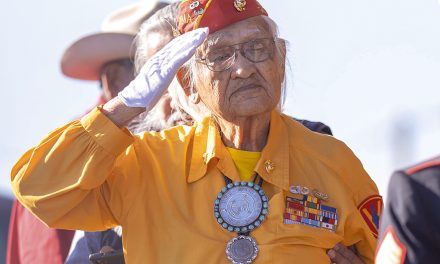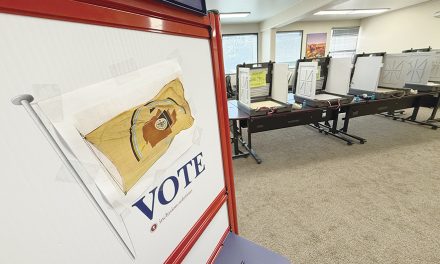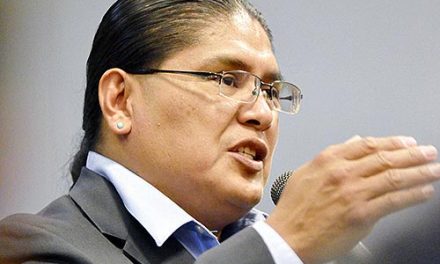
Letters | Grateful prayers
We would like to express our appreciation to everyone that allowed us to bury our beloved nephew, Darin O. Bryant.
Attendees were Navajo Nation Department of Social Services, Chinle Chapter, Silver Creek Mortuary, The Church of Jesus Christ of Latter-Day Saints, Tsosie family on the maternal side, and Bryant family on the paternal side.
The funeral was successfully concluded with the weather that spoke eloquently of spring to arrive after much needed moisture. Grateful prayers were sent out on the day we washed our hair for all that was touched by Darin.
May we all be more in tune to be compassionate, to forgive, and love one another.
Elise Bryant
Cottonwood, Ariz.
Not honoring Treaty
In the Navajo Times article titled, “Future of Navajo water rights heard in Supreme Court,” Holly James explains the water rights issue on the Navajo reservation that isn’t being met by the federal government. The Navajo Nation isn’t being supplied with enough water and the federal government is not doing their job to help protect Navajo water rights. Disregarding the Treaty of 1868 the U.S. promised the Navajo access to clean water on the Navajo Nation.
I think everyone throughout the Navajo Nation must have access to clean running water in their homes and be able to have what was promised to us in the Treaty of 1868. Along with a court case, Winter v. United States, it was clear that water rights were given to the Diné reservation and the U.S. to abide by it to persevere in the Navajo people’s homeland. Most Navajo people don’t have running water and when they must haul water they are only able to use about 7 gallons per day and must ration it. Navajo Nation Speaker Crystalyne Curley makes a point that there is about 30 percent of the Navajo population who don’t have access to water.
Curley also emphasizes that the federal government continues to deny Navajo people water from the Colorado River. I believe the federal government and the Dine both agreed to the Treaty of 1868 that there should be no excuse as to why they can’t honor the treaty and assist us with clean water, because it is within our rights.
I presume the obvious solution to the problem should be that the federal government must uphold their end of the bargain in providing the Navajo with water. Because I don’t think it should be that difficult. Another reason is because there were court cases that did in fact give us water rights and the U.S. should abide by and follow through with. Including the fact that most of the Navajos don’t have running water, especially the elderly and are struggling to conserve water for the next day.
Venicia Fernandez
Kayenta
A cure for potholes
In the Navajo Times article titled, “Guest Column Potholes unforgiving,” Bazhnibah explains potholes are damaging vehicle tires and rims which may lead to incidents and accidents which causes emotional trauma. The dangerous swerving to avoid the potholes especially when people are unfamiliar with the roads at nighttime. People are paying thousands of dollars for damaged tires and rims due to potholes. Bazhnibah wants to know where the tax money goes, and it is time to probe these endpoints of where tax money goes.
Potholes damage vehicles and as a result do bad infrastructure. The Navajo Nation needs to do more assessments and surveys of the roads on the Navajo reservation for safety precautions.
A lack of maintenance makes this issue more expensive down the road, but road maintenance is even more important for one reason, it saves lives. Yes, improper maintenance can lead to serious injuries, accidents and even deaths if you’re not careful. Bazhnibah states, “These incidents and accidents have also caused emotional trauma”. In other words, Bazhnibah emphasizes that a serious issue that causes the victim to suffer an extreme interruption of their daily life.
In order to reduce the pothole, the Navajo Nation needs to improve better infrastructure.
The road maintenance needs to patch the roads more often. The Navajo Nation need to update their system and need more create job opportunities for the road authorities. We must drive cautiously and obey the speed limit. We must not be silent about where the money we pay taxes is used for.
Where is the money we pay taxes here on the Navajo Nation going?
Adriana Tso
Chinle










 Highway 264,
Highway 264, I-40, WB @ Winslow
I-40, WB @ Winslow